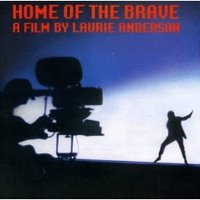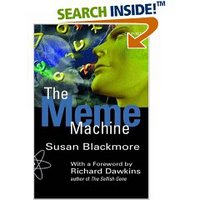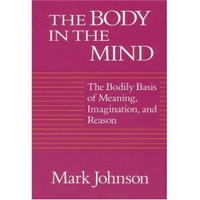
Thomas Kuhn coined the term “
Paradigm Shift” in 1962 in his “
The Structure of Scientific Revolutions”. The term had a very specific set of criteria. “...when enough significant anomalies have accrued against a current paradigm, the scientific discipline is thrown into a state of crisis… During this crisis, new ideas, perhaps ones previously discarded, are tried. Eventually a new paradigm is formed, which gains its own new followers, and an intellectual "battle" takes place between the followers of the new paradigm and the hold-outs of the old paradigm.” Wikipedia
I remember learning in college that most of the time it took all of the members of the current regime to die before a new paradigm really took hold. This idea has stayed with me when I grow impatient with a current belief (not the strongest ray of hope, thinking it will change, but I just won’t live to see it).
Over twenty-five years later, the power has gone out of the word, having been both over and misused.
Question: Doesn’t the whole human tendency to fear the unknown, to stamp down a wild outrageous idea, to censor the media, to ban a book, etc. contradict the meme notion? (see recent article
Pushing the Envelope for more on fear and banned books).
TANGENT: On a recent stay at family friends home, I read his son’s book
Jakarta from the Inside Out. I loved this book because it is the kind of book I always wanted to write. It tells the

truth therefore it is hilarious—and it is banned in Jakarta (even though their constitution doesn’t permit it). Amazon says they only have three left in stock (and when I buy one, that will be two). It’s worth a read even if you aren’t planning a trip to Jakarta just now. Help me prove my point “banning an idea makes it stronger”.
TANGENT: In a recent travel writing class my professor pointed out the folly in my logic. Apparently writing negative comments about a location doesn’t sell magazine ads. Knocked out half of my travel stories as magazine sales prospects. Darn.
Why ban a book and spread an idea at the same time? I mean, we humans are the messengers of both. Sort of reminds me of
punctuated equilibrium (slang-breviated as
punk eek). The way I understand it, if there were missing links, gaps in the evolutionary path, there was still a burden on science to explain this, or face the ravages of creationism. The theory held that “new and favorable mutations are diluted by the sheer bulk of the population through which they must spread....”
So maybe that would explain it. After all, all viruses are not successful, so why would all memes be? And maybe the challenge makes only the strong survive. Without the weeding out, we’d be overrun with bad ideas.
 Thomas Kuhn coined the term “Paradigm Shift” in 1962 in his “The Structure of Scientific Revolutions”. The term had a very specific set of criteria. “...when enough significant anomalies have accrued against a current paradigm, the scientific discipline is thrown into a state of crisis… During this crisis, new ideas, perhaps ones previously discarded, are tried. Eventually a new paradigm is formed, which gains its own new followers, and an intellectual "battle" takes place between the followers of the new paradigm and the hold-outs of the old paradigm.” Wikipedia I remember learning in college that most of the time it took all of the members of the current regime to die before a new paradigm really took hold. This idea has stayed with me when I grow impatient with a current belief (not the strongest ray of hope, thinking it will change, but I just won’t live to see it). Over twenty-five years later, the power has gone out of the word, having been both over and misused. Question: Doesn’t the whole human tendency to fear the unknown, to stamp down a wild outrageous idea, to censor the media, to ban a book, etc. contradict the meme notion? (see recent article Pushing the Envelope for more on fear and banned books). TANGENT: On a recent stay at family friends home, I read his son’s book Jakarta from the Inside Out. I loved this book because it is the kind of book I always wanted to write. It tells the
Thomas Kuhn coined the term “Paradigm Shift” in 1962 in his “The Structure of Scientific Revolutions”. The term had a very specific set of criteria. “...when enough significant anomalies have accrued against a current paradigm, the scientific discipline is thrown into a state of crisis… During this crisis, new ideas, perhaps ones previously discarded, are tried. Eventually a new paradigm is formed, which gains its own new followers, and an intellectual "battle" takes place between the followers of the new paradigm and the hold-outs of the old paradigm.” Wikipedia I remember learning in college that most of the time it took all of the members of the current regime to die before a new paradigm really took hold. This idea has stayed with me when I grow impatient with a current belief (not the strongest ray of hope, thinking it will change, but I just won’t live to see it). Over twenty-five years later, the power has gone out of the word, having been both over and misused. Question: Doesn’t the whole human tendency to fear the unknown, to stamp down a wild outrageous idea, to censor the media, to ban a book, etc. contradict the meme notion? (see recent article Pushing the Envelope for more on fear and banned books). TANGENT: On a recent stay at family friends home, I read his son’s book Jakarta from the Inside Out. I loved this book because it is the kind of book I always wanted to write. It tells the  truth therefore it is hilarious—and it is banned in Jakarta (even though their constitution doesn’t permit it). Amazon says they only have three left in stock (and when I buy one, that will be two). It’s worth a read even if you aren’t planning a trip to Jakarta just now. Help me prove my point “banning an idea makes it stronger”. TANGENT: In a recent travel writing class my professor pointed out the folly in my logic. Apparently writing negative comments about a location doesn’t sell magazine ads. Knocked out half of my travel stories as magazine sales prospects. Darn. Why ban a book and spread an idea at the same time? I mean, we humans are the messengers of both. Sort of reminds me of punctuated equilibrium (slang-breviated as punk eek). The way I understand it, if there were missing links, gaps in the evolutionary path, there was still a burden on science to explain this, or face the ravages of creationism. The theory held that “new and favorable mutations are diluted by the sheer bulk of the population through which they must spread....” So maybe that would explain it. After all, all viruses are not successful, so why would all memes be? And maybe the challenge makes only the strong survive. Without the weeding out, we’d be overrun with bad ideas.
truth therefore it is hilarious—and it is banned in Jakarta (even though their constitution doesn’t permit it). Amazon says they only have three left in stock (and when I buy one, that will be two). It’s worth a read even if you aren’t planning a trip to Jakarta just now. Help me prove my point “banning an idea makes it stronger”. TANGENT: In a recent travel writing class my professor pointed out the folly in my logic. Apparently writing negative comments about a location doesn’t sell magazine ads. Knocked out half of my travel stories as magazine sales prospects. Darn. Why ban a book and spread an idea at the same time? I mean, we humans are the messengers of both. Sort of reminds me of punctuated equilibrium (slang-breviated as punk eek). The way I understand it, if there were missing links, gaps in the evolutionary path, there was still a burden on science to explain this, or face the ravages of creationism. The theory held that “new and favorable mutations are diluted by the sheer bulk of the population through which they must spread....” So maybe that would explain it. After all, all viruses are not successful, so why would all memes be? And maybe the challenge makes only the strong survive. Without the weeding out, we’d be overrun with bad ideas.












